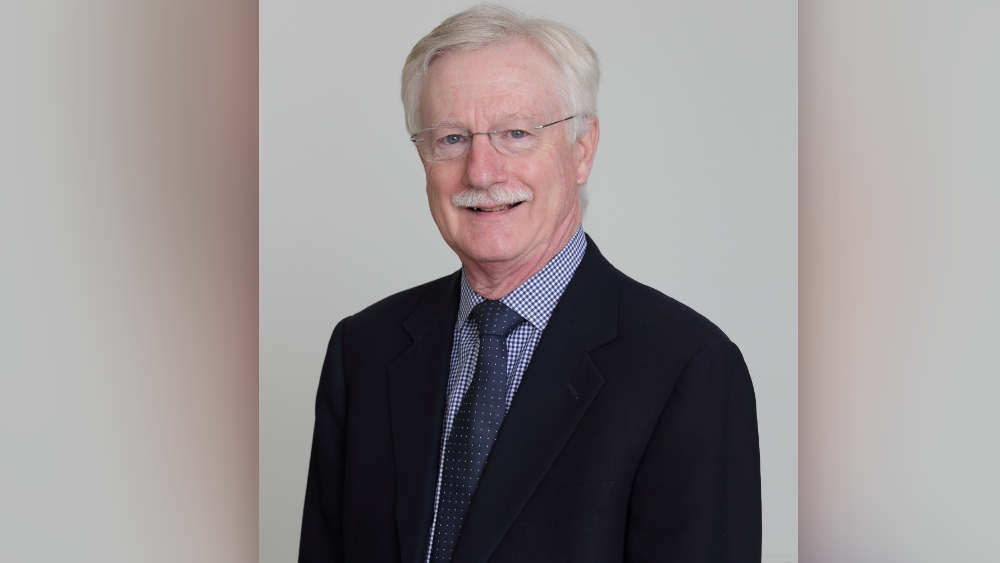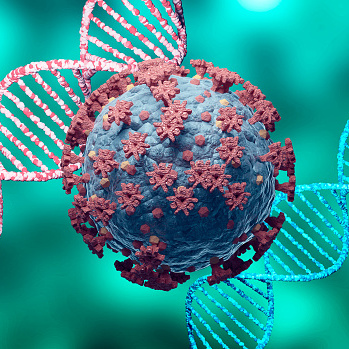Article Highlights
-
Gulf Coast communities experienced repeated catastrophic events, ongoing economic inequality, and health disparities.
-
A study supported by the National Institute on Alcohol Abuse and Alcoholism (NIAAA) is examining how the COVID-19 pandemic has affected alcohol use in communities hit by repeated disasters.
-
The study will use long-term data to understand the true effects of the pandemic.
Over the past two decades, disasters have repeatedly hit the Gulf Coast. In 2005, Hurricane Katrina devastated communities along the coastline from Texas to Florida. Five years later, the Deepwater Horizon oil spill closed fisheries, impacting the economies of both the fishing industry and the communities that support it. More hurricanes rolled through over the next few years, including Hurricane Harvey in 2017. These disasters wreaked havoc on the local environment and on the people who lived there. One study found that 50% of residents surveyed along the Gulf Coast were experiencing anxiety, depression, or misusing alcohol 6 years after the oil spill.
Then in 2020, another disaster hit: COVID-19 started making its way through the United States, affecting physical health, livelihoods, and mental health, too. Sales of alcohol increased more during the first year of the COVID-19 pandemic than any year in the last 50 years.
Researchers studying the resilience of people along the Gulf Coast ever since the oil spill were worried. “This is already such a disaster-impacted and climate change-affected region,” said Lynsay Ayer, a behavioral and social scientist for the RAND Corporation, a nonprofit research organization, and the principal investigator for a study supported by the National Institute on Alcohol Abuse and Alcoholism (NIAAA). “On top of that, you add a pandemic and everything that goes along with it,” she said, such as unemployment and the isolation that came along with stay-at-home orders in 2020, which could change people’s relationship to alcohol.
As part of that NIAAA-supported study, researchers will investigate how the COVID-19 pandemic has affected the use of alcohol in Gulf Coast communities — and, they hope, get insight into how to foster resilience for the future.

Lynsay Ayer, a behavioral and social scientist for the RAND Corporation, is the principal investigator for a study of disaster resilience during the COVID-19 pandemic. Photo courtesy of Lynsay Ayer.

Lynsay Ayer, a behavioral and social scientist for the RAND Corporation, is the principal investigator for a study of disaster resilience during the COVID-19 pandemic. Photo courtesy of Lynsay Ayer.
Previous Work Hints at Alcohol Use After Disasters
A 2021 grant from the National Science Foundation (NSF) kicked off the pandemic-focused effort by allowing researchers to conduct a survey of communities on the Gulf Coast of Louisiana. But it wasn’t the first time these communities had been surveyed.
As part of the cleanup efforts and settlement agreement after the Deepwater Horizon oil rig explosion destroyed wildlife and local livelihoods on the Louisiana coast, a study was launched to look at the health and economic impacts of the spill on nearby residents.
This study, called the Survey of Trauma, Resilience, and Opportunity Among Neighborhoods in the Gulf (STRONG), contacted more than 2,500 people across the region by phone and mail and online and surveyed them about their experiences following the spill — including how the disaster affected their finances, mental health, and use of alcohol. A later survey round, after Hurricane Harvey in 2017, contacted about 1,000 of the original study participants to see how they were faring.
When looking at how social support played a role in the lives of Gulf Coast residents 6 years after the oil spill, the researchers found that people living in the region who had been affected by the spill and had strong social support were less likely to experience depression and anxiety. However, for those who lived in the region and were not directly affected by the spill, having strong social networks was linked to alcohol misuse — highlighting the way that these disasters may affect certain groups of people differently.
Researchers also noticed an interesting relationship between the role of religion and drinking. In communities with large shares of people reporting a religious affiliation, people affected by the oil spill who were not religious had much higher levels of heavy drinking following the oil spill, possibly because they did not have the same social support and influence as those who were part of a religious organization. If this pattern continued through the pandemic, Ayer said, it could “point to some populations with higher need for prevention and intervention.”
Other influences may also be affecting local alcohol use, said Vanessa Parks, a sociologist at RAND who first began working with these communities as part of the effort to survey those impacted by the Deepwater Horizon spill. While many people might think of the South’s dry counties (where alcohol sales are prohibited) and “Bible Belt” customs when it comes to this region, coastal areas are somewhat different. The festive customs of the Gulf Coast draw revelers during Mardi Gras and spring break, when drinking may be more prevalent and accepted.

Risky Alcohol Use: An Epidemic Inside the COVID-19 Pandemic
NIH studies have revealed the health effects related to alcohol use during the pandemic and have contributed to tools that help reduce problem drinking and improve their health.

A map of the communities that the STRONG survey is researching to understand the impact of the COVID-19 pandemic on alcohol use. Image courtesy of the RAND Corporation Consortium for Resilient Gulf Communities.

A map of the communities that the STRONG survey is researching to understand the impact of the COVID-19 pandemic on alcohol use. Image courtesy of the RAND Corporation Consortium for Resilient Gulf Communities.
Alcohol and the COVID-19 Pandemic
The 2021 grant from NSF gave researchers the opportunity to launch a third wave of surveys in these communities. Further support from NIAAA will allow researchers to complete two additional rounds of surveys, with a goal of getting back in touch with at least 1,000 of the original participants.
These new efforts give researchers the chance to learn how the pandemic’s combination of job loss and social isolation might affect alcohol use in the region. And because the researchers have data going back to 2016, they will be able to understand the effect of the pandemic itself by comparing alcohol use to pre-pandemic levels, something that other COVID-19 research may not be able to do, Ayer said.
NIAAA’s support will also allow the research team to make more intensive efforts to find previous participants, even knocking on doors to look for them in some cases, Ayer said. So much disruption over the years has meant participants have moved often, sometimes out of the area, and phone lines that many participants used to respond to the initial survey may have been disconnected.
When the researchers make contact, they will gather information about the participants, including about their alcohol use, mental health, social support, and other pandemic experiences and perceptions. The data the researchers gather will be linked with community-level information about employment, job loss, and COVID-19 policies such as mask mandates, school closures, and other policies that may have affected people’s lives.
“These are already communities that have a lot of challenges. Layer on top of that all these disasters and it feels urgent to help.” —Lynsay Ayer

Pamela Waldron-Moore, a political scientist and professor at Xavier University, has been studying disaster resilience on the Gulf Coast for many years. Photo courtesy of Pamela Waldron-Moore.

Pamela Waldron-Moore, a political scientist and professor at Xavier University, has been studying disaster resilience on the Gulf Coast for many years. Photo courtesy of Pamela Waldron-Moore.
Communities at Risk
One of the driving forces for this research is the concern for people in communities that already contend with day-to-day struggles alongside a series of disasters. In some parts of the Gulf Coast, people have little or no access to mental health resources or supportive care for alcohol and substance misuse. “These are already communities that have a lot of challenges,” Ayer said. “Layer on top of that all these disasters, and it feels urgent to help.”
Pamela Waldron-Moore, a political scientist and professor at Xavier University in New Orleans, has been studying disaster resilience in the Gulf Coast region for many years and is an advisor on the alcohol-focused work funded by NIAAA. She has worked with students to understand both the history and impact of local disasters and develop ways to build resilience through supporting health, food security, and local and regional policy.
Waldron-Moore, whose own home was damaged by a 2021 hurricane, said that these disasters hit many of her neighbors particularly hard. “We have people who live within the community who do a little farming, cook food, and they’re the ones who had their little places blown away,” she said. The combination of poverty and a series of seemingly unending disasters can be overwhelming, and turning to alcohol may be one way people cope with a world that seems out of control, she said. “If that doesn’t send you to drink, what would?”
The researchers hope they may also find evidence of the resilience of these communities in coping with past disasters, something that can help with preparations and responses to future traumatic events. “But COVID is so unique, and the way that disrupted people’s social networks and daily lives is pretty different from other disasters that even this very experienced part of the country has faced before,” Ayer said.
Waldron-Moore agreed that the COVID-19 pandemic was completely different from anything people in the region had faced previously, a disaster “in which meaningful public support was denied to everyone, let alone the very needy.” In some cases, a history of community resilience may be a liability when it comes to getting help. “Many assume that they have built up such a ‘thick skin’ that their resilience is taken for granted and they are denied the support they really need,” Waldron-Moore said.
Because of this difference, Waldron-Moore said she wants to focus her research, and that of her students, on developing stronger, more creative policies and structures to promote true resilience “and help communities to evolve through knowledge to an emotional space where there may be less reliance on alcohol as medication for the pain and trauma.”
Sources
- Drakeford, L., Parks, V., Slack, T., Ramchand, R., Finucane, M., & Lee, M. R. (2019). Oil spill disruption and problem drinking: Assessing the impact of religious context among Gulf Coast residents. Population Research and Policy Review, 39, 119–146. https://doi.org/10.1007/s11113-019-09520-7
- Parks, V., Slack, T., Ramchand, R., Drakeford, L., Finucane, M. L., & Lee, M. R. (2019). Fishing households, social support, and depression after the Deepwater Horizon oil spill. Rural Sociology, 85(2), 495–518. https://doi.org/10.1111/ruso.12297
- Pollard, M. S., Tucker, J. S., & Green, H. D. (2020). Changes in adult alcohol use and consequences during the COVID-19 pandemic in the U.S. JAMA Network Open, 3(9), e2022942. https://doi.org/10.1001%2Fjamanetworkopen.2020.22942
- Ramchand, R., Parks, V., Drakeford, L., & Ghosh-Dastidar, B. (2016). Survey of Trauma, Resilience, and Opportunity Among Neighborhoods in the Gulf (STRONG) Codebook. Consortium for Resilient Gulf Communities. http://www.resilientgulf.org/wp-content/uploads/2018/04/TL276-STRONG-codebook.pdf
- Ramchand, R., Seelam, R., Parks, V., Ghosh-Dastidar, B., Lee, M. R., & Finucane, M. (2019). Exposure to the Deepwater Horizon oil spill, associated resource loss, and long-term mental and behavioral outcomes. Disaster Medicine and Public Health Preparedness, 13(5-6), 889–897. https://doi.org/10.1017/dmp.2019.3
- Upton, H. F. (2011). The Deepwater Horizon oil spill and the Gulf of Mexico fishing industry. Congressional Research Service. https://sgp.fas.org/crs/misc/R41640.pdf
 An official website of the United States government
An official website of the United States government


